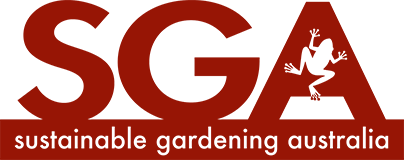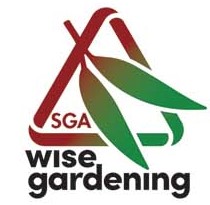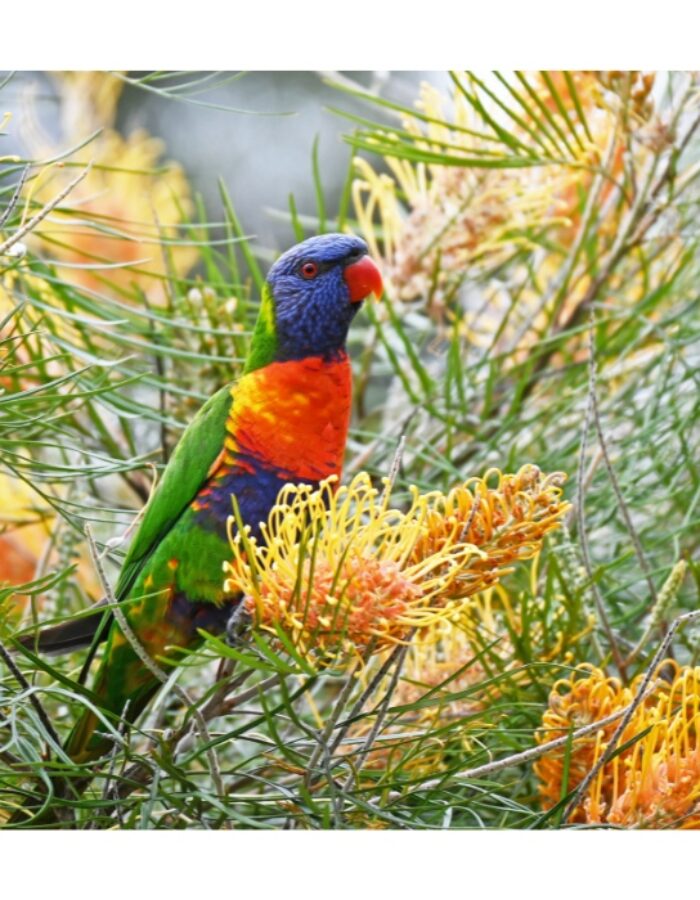WiseGardening aims to show the risks of garden chemicals to bees, birds, frogs and other species when we try to control pests, disease and weeds and help you make informed choices.
Why Use WiseGardening?
The broad community which uses chemical garden products has a right to know risks associated with their use. These products can affect:
- Users if they come into contact with the product or breathe in vapours – some products are quite toxic.
- Species that visit or live in our gardens – birds, bees, fish, worms, frogs and a range of mammals, such as pets, especially if the chemicals persist in the soil.
- Aquatic species as well as fish – if the chemicals can be washed through the soil winding up in streams and other waterways they may harm not only fish, but also other aquatic organisms.
So knowing which product to select, when faced with a plethora of ‘plantastic products’ in the local garden centre, or knowing if we should still use old products with stained labels stored in our garden sheds, can be very daunting. In order to minimise these risks we all need to know what they are.
WiseGardening has been developed to help all of us achieve international sustainable development goals through reducing some of the impacts that our society has had on the planet. This Australia-first guide aims to be rigorous in its ratings so it is based on publicly available evidence-based, scientific information from university and government sources. SGA has assessed then rated over 850 garden chemical products commercially available in Australia. Because SGA prefers to avoid using chemicals, we also present alternative non-chemical methods which we recommend as the first line of defence for garden problems, but we recognise that there are times when a chemical product is a necessary choice.
Similar guides are available for specific areas overseas, such as Europe or the USA (www.growsmartgrowsafe.org) but these are not tailored for products and formulations used in Australia.
As you might expect, since these products are termed pesticides and weedicides where the suffix “icide” means “kill”, many chemical products, as well as killing their targets, carry risks to users and other species on our amazing planet – even when they are used very carefully.
Manufacturers alert users to these risks on their product labels, instructions for use and Safety Data Sheets. However, when consumers buy products they may not consult these sources in-store to compare products and may not even read or understand the advice provided before using the products. WiseGardening provides an easy way of comparing products for their impacts on humans and other species on the planet.
WiseGardening does not:
- Provide comment on product effectiveness in achieving its purpose, or
- Endorse, or condemn any product, manufacturer, brand or supplier.
Principles Underpinning WiseGardening
- Transparency – We aim to augment the availability of information that manufacturers provide about their garden products. To this end, WiseGardening uses publicly available information from many sources. (See Our Ratings and Assessment Process)
- Accuracy – This means that assessments are systematic and based on robust scientific research from reputable sources. However, sometimes this information is unavailable due to commercial considerations and sometimes due to out of date or incomplete information. Where little or no information about a product or ingredient is available this is indicated in WiseGardening.
- Independence and objectivity – No preference to any products or for any manufacturer is given.
- Comprehensiveness and inclusiveness – We aim to include all chemical garden products available in Australia for non-agricultural use. Products available in other countries are not included since, elsewhere, they mostly differ in names and ingredients. We have also not restricted assessments to commercially manufactured products and have included alternative mostly non-chemical approaches. If a product is missing it is not intentional; we aim to include all relevant products. We have not considered home-made mixes of household chemicals since it is not possible to obtain any accurate information about ingredients used in these preparations.
- Currency – The assessment is routinely updated and products are frequently assessed to determine if their ingredients, or details in the product description, have changed. Information sources for ingredients are also frequently checked to ensure the latest publicly available scientific assessments are used. As products are often discontinued by manufacturers, we retain these products in our database so that assessments can be made of new products against discontinued products across product types. Sometimes, new products have the same name as a discontinued product but have a different composition. We aim to ensure that assessments of current products are no older than 1 year.
- Ease of Use – The rating system should provide users with data that is accessible, able to allow comparison and easy to use. Data entry for WiseGardening has been structured so that assessment is performed automatically, drawing on ingredient information within the database.
- Compatible with UN Sustainable Development Goals –
- Goal 3: Ensure healthy lives and promote well-being for all at all ages
- Goal 12: Ensure sustainable consumption and production patterns
- Goal 13: Take urgent action to combat climate change and its impacts
- Goal 15: Sustainably manage forests, combat desertification, halt and reverse land degradation, halt biodiversity loss
- Fostering productive change – encouraging the community and industry, through education, to engage with the change required to achieve a safer and more sustainable world.
Who are We?
Sustainable Gardening Australia (SGA) is a not-for-profit, non-government organization with a strong interest (passion) for enabling gardeners to grow their own food, protect their health and that of the planet and all that is naturally on it. It has charitable status under the federal government’s Register of Environmental Organisations and is registered with the Australian Charities and Not-for-Profit Commission (ACNC).
WiseGardening was initiated over 20 years ago as a collaboration between SGA, Paul Gibson-Roy from Burnley Horticultural College (now part of the University of Melbourne), the garden centre Bulleen Art and Garden and local government.
Since 2016, our SGA team has further developed and refined WiseGardening to make it available as part of our web presence. Development has been supported by a 1 year grant from the Telematics Trust as a project to provide community education.
The Team
Dr. Sharron Pfueller (biochemistry, cell biology, environment, sustainability), Dr. Colin Allison (chemistry, environment, climate change, database development), Angelo Eliades (horticulture, permaculture, toxicology), Bridey Oliver (horticulture), Jane Rollinson (horticulture, information mapping), Michelle Dyason (natural methods of pest control).
For full details of our methodology please see Our Assessment and Rating Process.
Who Might use WiseGardening?
Intended users of WiseGardening include home gardeners, managers of Parks and Reserves such as local government, those who maintain public green space, community gardeners, those concerned with human health and natural life on the planet.


